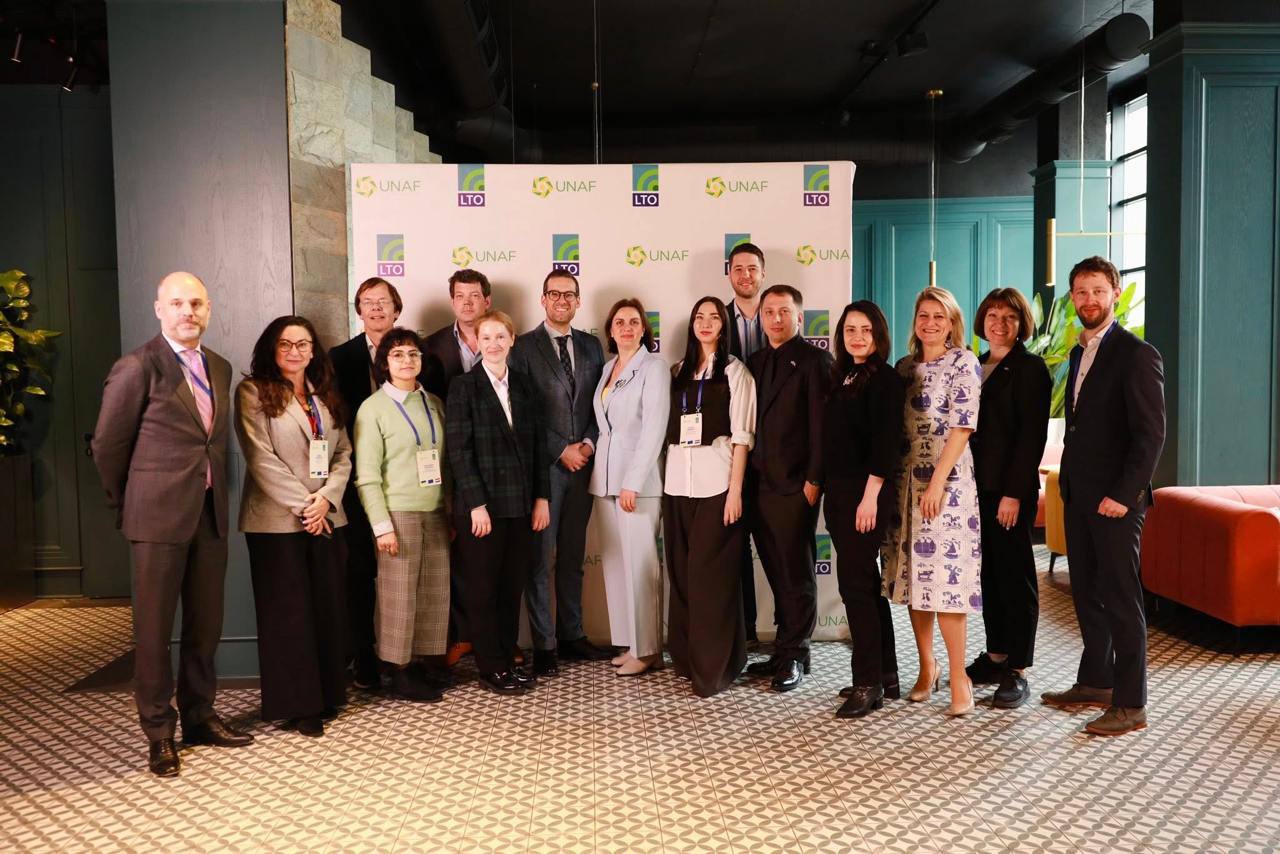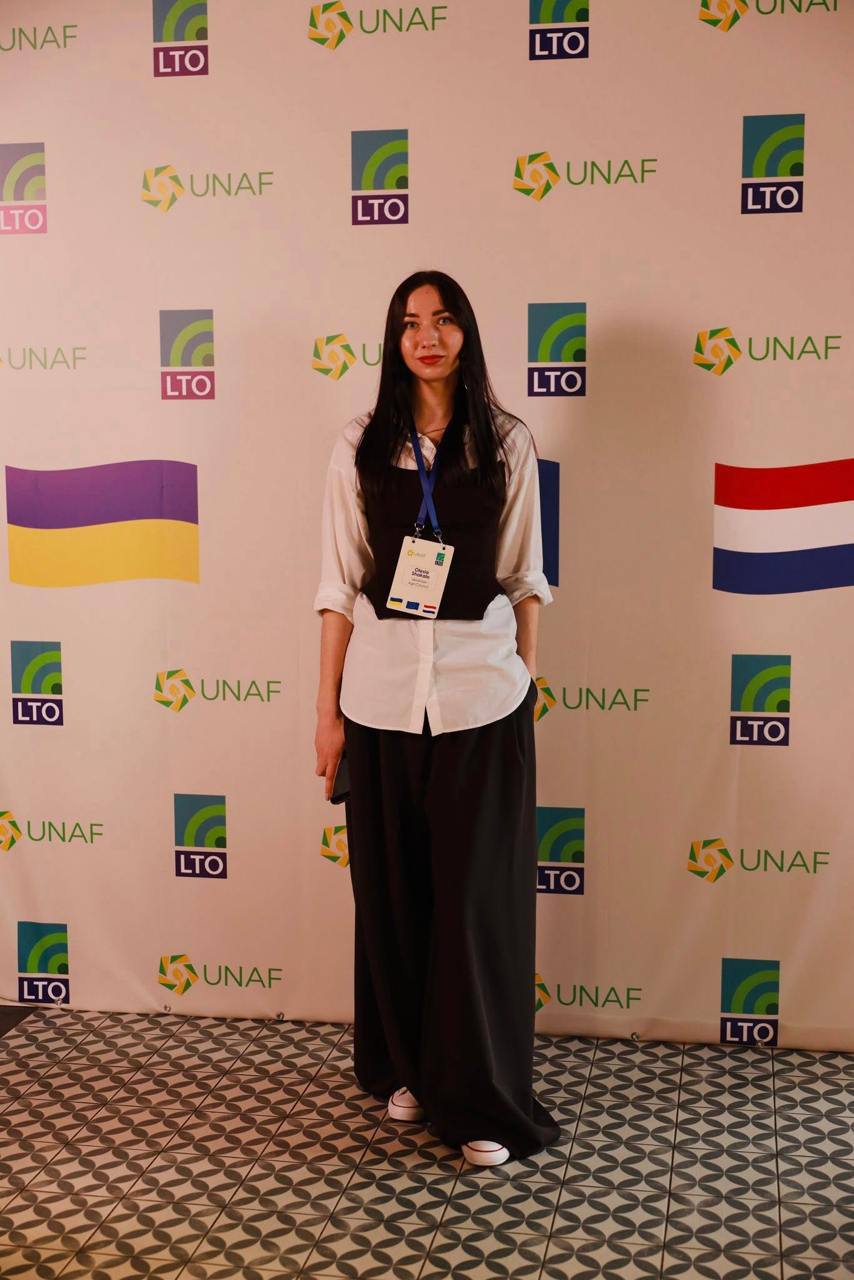On April 11, the Second Ukraine-Netherlands Agricultural Dialogue (UANLAD) roundtable was held with the participation of Ambassador of the Kingdom of the Netherlands to Ukraine Alle Dorhout, representatives of the Ministry of Agriculture, Fisheries, Food Security and Nature of the Kingdom of the Netherlands, the Ministry of Agrarian Policy and Food of Ukraine, representatives of the Dutch Agricultural and Horticultural Organization (LTO) and the Ukrainian Agrarian Forum (UAF), which includes the Ukrainian Agri Council (UAC).

The roundtable was officially opened by the Ambassador of the Kingdom of the Netherlands to Ukraine, Alle Dorhout. He welcomed the initiative of Ukrainian agricultural associations to establish a dialogue with their European counterparts.
"Ukrainian agriculture plays a vital role in the process of Ukraine's accession to the EU, although it is also a very sensitive issue. Yes, some EU member states are concerned about the Ukrainian agricultural sector, but it will help make the EU less dependent on food imports," said Ambassador of the Kingdom of the Netherlands to Ukraine Alle Dorhout.
Olesia Shakalo-Olshynetska, member of the Board of the Ukrainian Agri Council, presented the position of the UAC on the European integration of the Ukrainian agricultural sector and the transition period for Ukrainian farmers.

“We see Ukraine's mission as ensuring global food security, including the provision of food to the people of Africa, which is necessary not only from a humanitarian point of view, but also to prevent an increase in immigration from Africa to the EU. That is why we believe that the best way for the Ukrainian agricultural sector to integrate into the EU is to implement the “one country, two systems” approach. When those farmers who comply with European requirements have unlimited access to the European market and receive subsidies under the EU's Common Agricultural Policy (CAP). And those who do not comply (for example, use plant protection products that are allowed in other countries but prohibited in the EU) - export their products to third countries and do not receive EU subsidies and access to the EU market.
Olesia Shakalo-Olshynetska also emphasized that Ukraine should be given 20 years to adapt to the Common Agricultural Policy (CAP), taking into account the war and infrastructure losses, in order to make European integration not a stress but a chance for the agricultural sector.
Maria Didukh, Director General of the Ukrainian National Agrarian Forum (UNAF), supported this statement. In her speech, she emphasized the crucial importance of the agricultural sector for the country's economy as the main source of exports and state budget revenues. She explained to the representatives of the Dutch agricultural community the peculiarities of the mixed system of Ukrainian agricultural production, which included large agricultural companies, medium and small agricultural enterprises, and households, and elaborated on the devastating consequences of the war for the industry, including significant financial losses, reduced sown areas, land pollution and a drop in production of major crops.
According to Ralf van de Beijk, Director of International Agribusiness and Food Security at the Ministry of Agriculture, Fisheries, Food Security and Nature of the Kingdom of the Netherlands, the devastating effects of the war on the agricultural sector and world trade in particular are felt in the EU. So in this situation, food security and strategic autonomy are more important than ever, which reinforces the relevance of joint work and Ukraine's European integration,” said Ralf van de Beijk.
This meeting is a part of series of planned strategic activities aimed at strengthening cooperation and exchange of experience between agrarian associations of Ukraine and the European Union, and deepening the constructive dialogue between representatives of the agricultural sector on the path to Ukraine's accession to the EU.
The UAC and the UNAF, together with representatives of the Ukrainian agricultural sector, thank their Dutch colleagues for their visit, readiness for a constructive dialogue and support of Ukrainian agricultural producers in this difficult time. The roundtable participants agreed on the positive long-term impact of the integration of the Ukrainian agricultural sector on the EU's strategic autonomy in the field of food security. They also agreed that the interaction of the Ukrainian and Dutch agri-food sectors opens up opportunities for increasing the competitiveness of both countries.
Tuesday, 15 April 2025